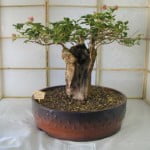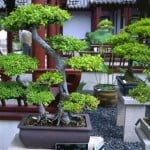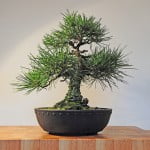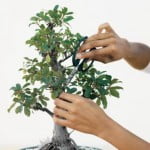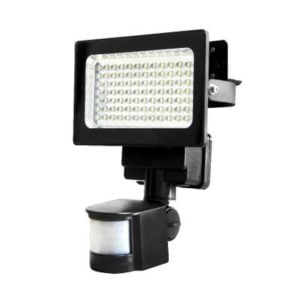The art of growing Bonsai is an ancient oriental tradition, in which bonsai means “tray gardening”. There are traces of bonsais (miniature trees or bushes) in Egypt, Japan and China, and it was considered that the miniature tree would have concentrated the powers of the actual-size tree.
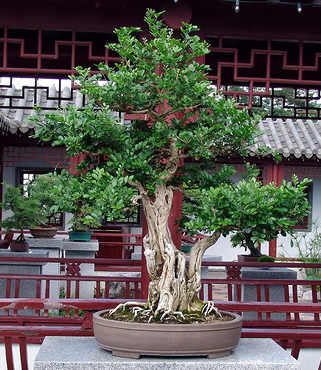
Bonsai trees require a lot of care. The branches, leaves and roots need regular pruning to maintain the shape of the plant. Pinching is also required and the use of small wires to keep the branches growing in a certain way.
Because the root system is very small, bonsais need to be watered regularly and properly. They are also very sensitive to excessive heat (which makes water evaporate quicker), sun and wind.
Keeping bonsais in their shape is an art and there are different styles that apply to different types of bonsai trees. The basic five styles are formal upright, informal upright, cascade, semi cascade and windswept.
The cascade style is probably the most interesting to display, as the branches of the tree eventually reach a level below the base of the pot.
For the Japanese Bonsai have aesthetic beauty and are meant to evoke the spirit of the plant being used. This may also include the use of rocks, mountains or water features to recreate the surroundings of the actual tree in reality.
This also includes choosing the most appropriate bonsai for an environment. There are indoor and outdoor bonsais, and the Japanese placed them to suit a certain space with a type of spirit. Not all bonsai trees should be, according to this tradition, displayed in any place.
A bonsai is a very elegant tree to display outdoors, and it makes an interesting choice for an indoor spot. Get yourself started today with a Dwarf Japanese Garden Juniper (considered by some as the best bonsai for a beginner) and enhance the appearance of your chosen spot.

[wd_hustle id=’share’ type=’social_sharing’]


